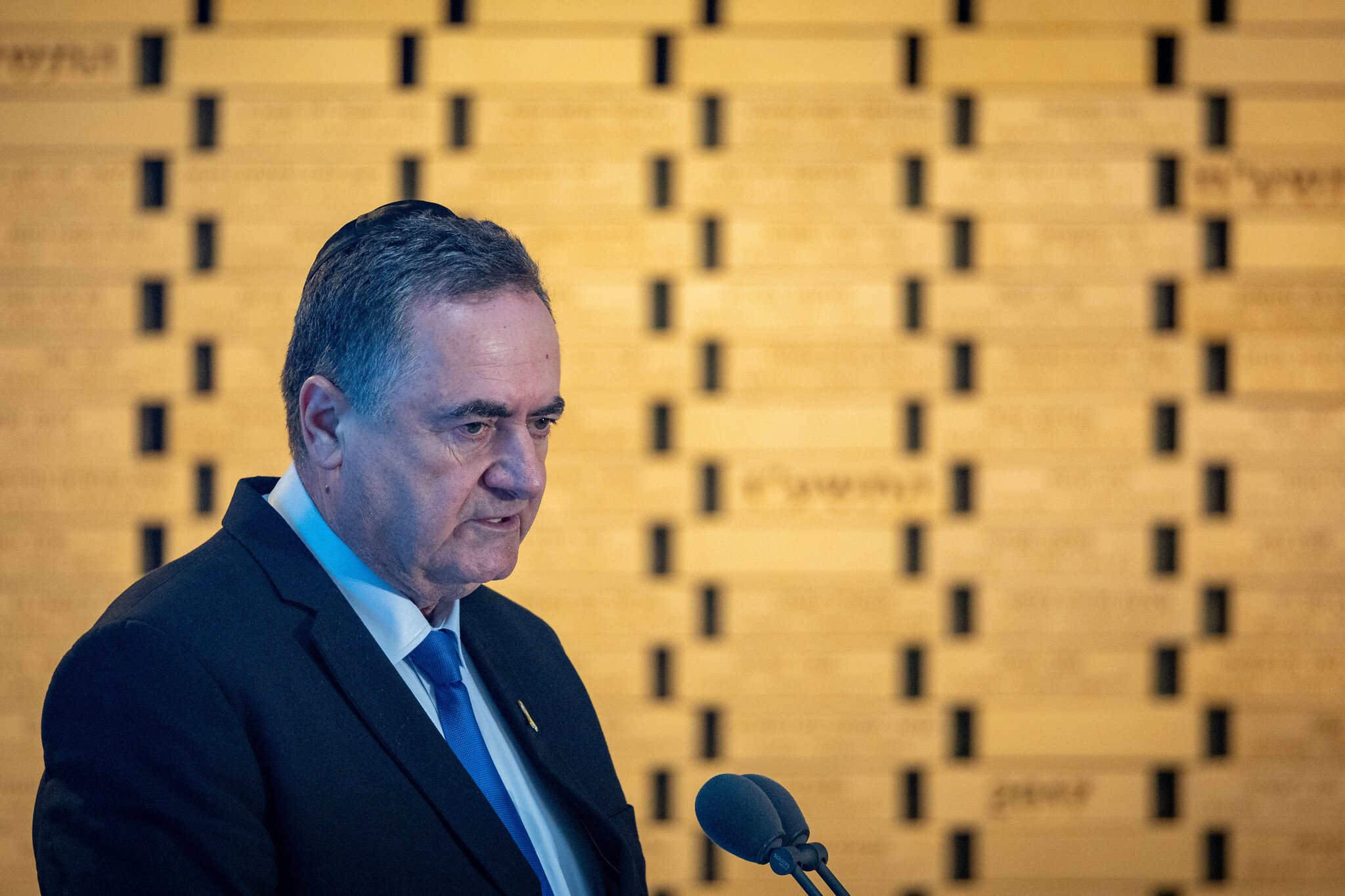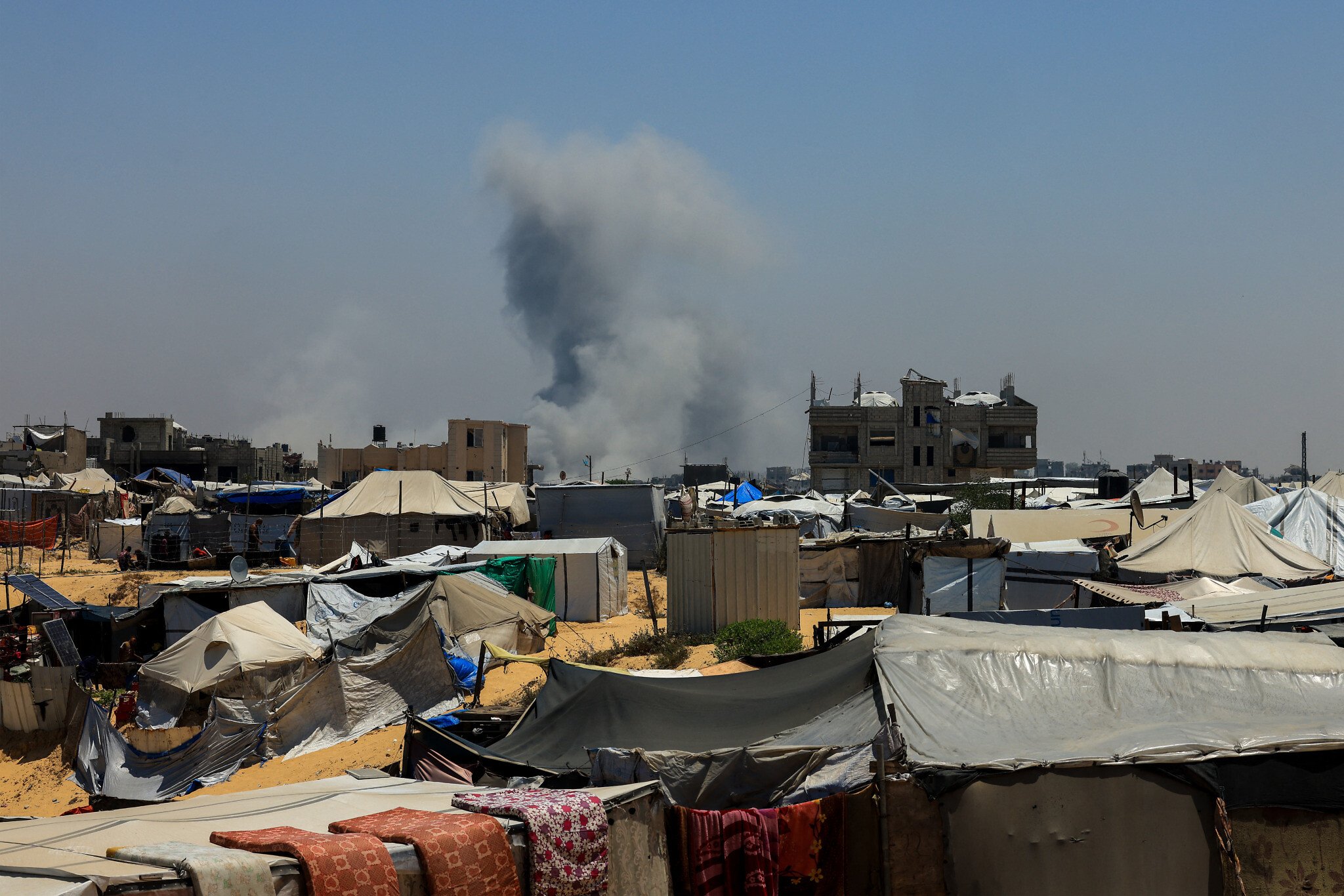



Defense Minister Israel Katz told reporters in a Monday briefing that he had instructed the Israel Defense Forces and his ministry to bring forward a plan to establish a new “humanitarian city” in the southern Gaza Strip, on the ruins of Rafah.
The idea of the zone, according to Katz, is to accommodate initially some 600,000 Palestinians who have been living in the Mawasi area on the coast since they were displaced from elsewhere in the Strip, after screening them to ensure Hamas operatives are not among them.
Palestinians will not be allowed to leave the zone, he said.
According to Katz’s vision, the entire civilian population of Gaza — more than 2 million people — would eventually be congregated in the zone while the IDF secures it from a distance, as international bodies work to manage the area. An additional four aid distribution sites would be established in the area, he said.
Katz also emphasized his ambition to encourage Palestinians to “voluntarily emigrate” from the Gaza Strip to other countries, saying this plan “should be fulfilled.”
It’s unclear if the zone would be used as a transit point, as described in a Reuters report earlier Monday that detailed plans for “Humanitarian Transit Areas” where Gazans could “temporarily reside, deradicalize, re-integrate and prepare to relocate if they wish to do so.”

The director general of the Defense Ministry, Amir Baram, has already begun advancing planning for the zone, which Katz stressed will not be run by the IDF, but rather by international bodies.
The defense minister did not specify which international organizations would operate the city, and other than the Israeli- and US-backed Gaza Humanitarian Foundation, it is unlikely that any would cooperate, given that the plan aims to displace the entire Palestinian population of the Strip.
There are also concerns that Israel will establish settlements in the areas it forcibly evacuates. Prime Minister Benjamin Netanyahu has said that is not his plan, but he is beholden to far-right coalition partners who are determined to see it through.
The defense minister’s statements came soon after Netanyahu landed in the US to meet with President Donald Trump, as the latter pushes for a deal to end the war in Gaza and bring back the remaining Hamas-held hostages.

Netanyahu stressed his opposition to any hostage deal that would ultimately leave Hamas in power in Gaza, prior to his Sunday departure to Washington.
“Twenty living hostages remain and 30 who are fallen. I am determined, we are determined, to bring back all of them,” the premier told reporters before boarding his plane. But, he added, “we are determined to ensure that Gaza will no longer constitute a threat to Israel.”
“That means one thing: eliminating Hamas’s military and governing capabilities. Hamas will not be there,” he said. An Israeli negotiating team was in Doha on Monday for indirect talks with the terror group toward a deal.
Trump said last Tuesday that Israel had accepted the latest ceasefire proposal, which provides for the release in five separate stages of 10 living and 18 slain hostages, in exchange for a 60-day ceasefire, an influx of humanitarian aid to the Strip and the release of many Palestinian security prisoners and detainees.
Hamas gave what it called a “positive” response to the proposal. However, the terror group stressed it has reservations about the proposed truce’s temporary nature, holding out on several demands, among them a permanent end to the war.
Netanyahu’s office called Hamas’s stipulations — which also concerned aid mechanisms and IDF troop withdrawals — “unacceptable.”
Despite Hamas objections to continued IDF presence in the Strip, Katz said Monday that Israel seeks to hold on to the Morag Corridor, north of Rafah, in any future deal with the terror group. During a potential 60-day ceasefire, Israel would work to establish the new humanitarian zone south of the corridor, he added.
He also told reporters in the briefing that the IDF is holding onto nearly 70 percent of the Strip’s territory.
Lazar Berman contributed to this report.
